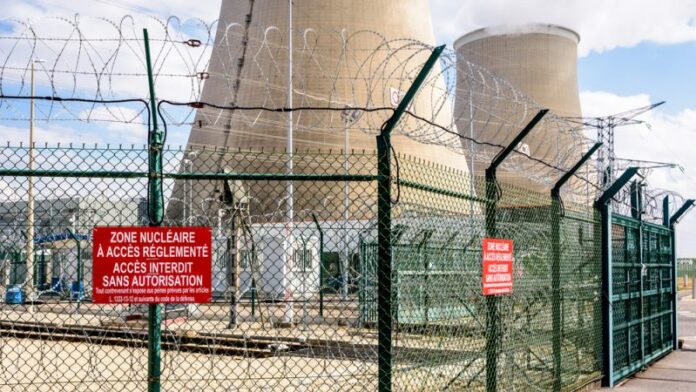A bill to speed up the construction of new nuclear reactors was approved by the French parliament on Tuesday, with the government hailing it as an environmental step forward, according to Euractiv.
Lawmakers on Tuesday validated the bill to accelerate the construction of new nuclear reactors. The compromise text struck between the National Assembly and the Senate was voted by 339 votes to 100.
MPs from the majority (Renaissance, Horizons, Modem), the independents (LIOT), the right (Les Républicains) and the extreme right (Rassemblement national) voted in favour of the text, in addition to a dozen communist MPs.
Among the opponents, the Greens, the radical left (La France insoumise) and a handful of Communists voted “against” while the Socialists abstained.
Once it comes into force, the new law will speed up the construction of new nuclear reactors by simplifying the required administrative procedures and planning documents. The Energy Transition Ministry expects future construction times to be reduced by at least two years.
In addition, a 50% cap on nuclear power’s share of France’s electricity mix was removed. The text also provides for tightening the penalties for those who illegally enter a nuclear power plant, now set at a maximum of two years imprisonment.
This text is part of the government’s strategy to facilitate the development of renewable energies and nuclear power to achieve the energy transition.
Environmental NGOs denounced “a law that is disconnected from ecological and climatic imperatives”. Greenpeace, in particular, questioned “the slowness of the construction of nuclear reactors”, as well as “the safety” and “the conflicts of water use” that are to be expected.
Energy Transition Minister Agnès Pannier-Runacher assured left-wing MPs who opposed the text that “voting against renewable energy and nuclear power is voting for fossil fuels. It is a vote for global warming.”
The first construction is expected to begin in 2027. The same day, on Tuesday morning, 16 European states participated in the “nuclear alliance” to prepare a roadmap for developing an integrated European nuclear industry to reach 150 GW of nuclear in the EU electricity mix by 2050.


